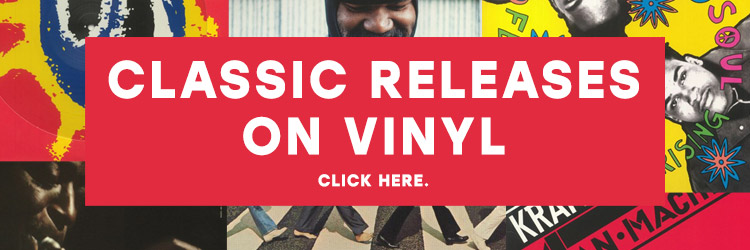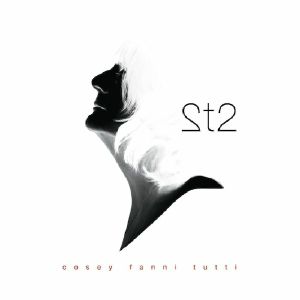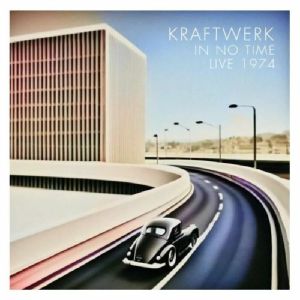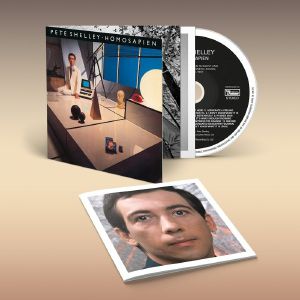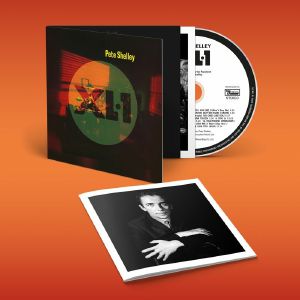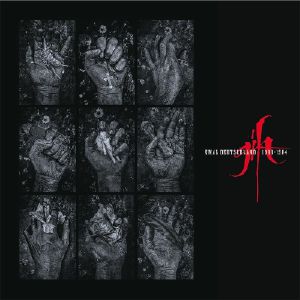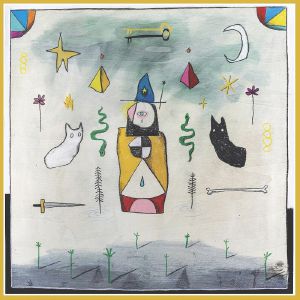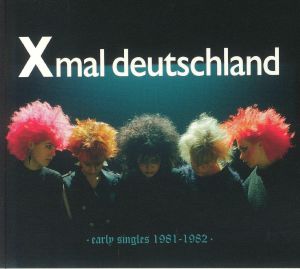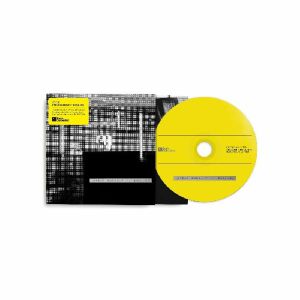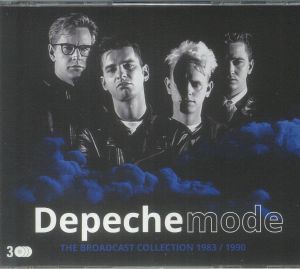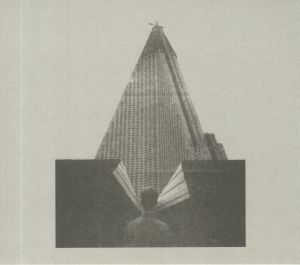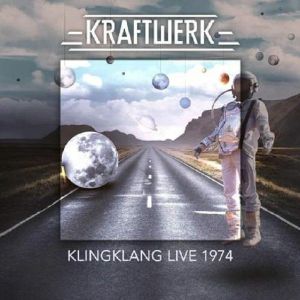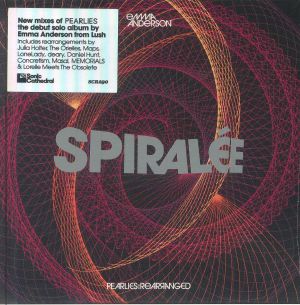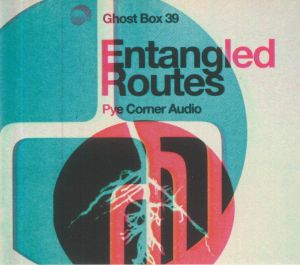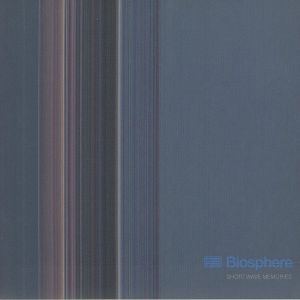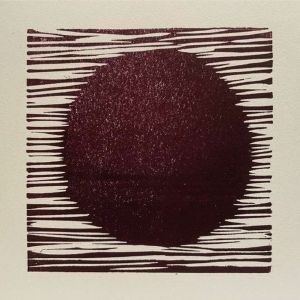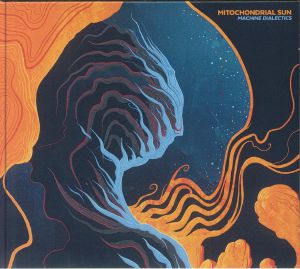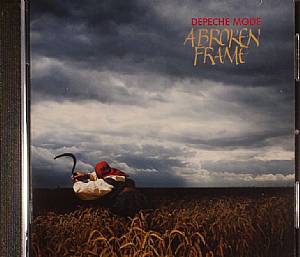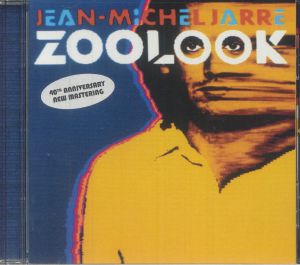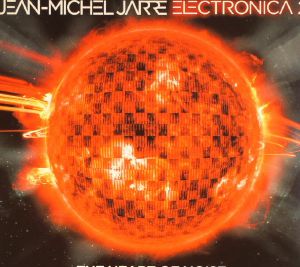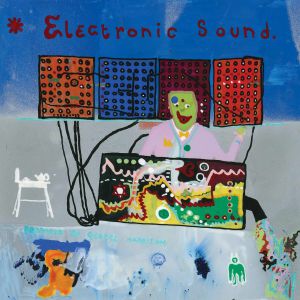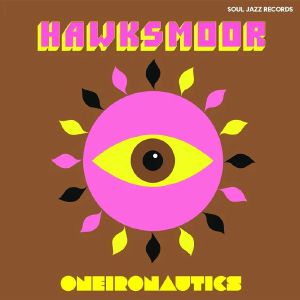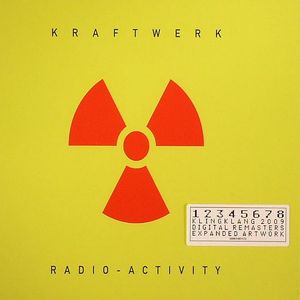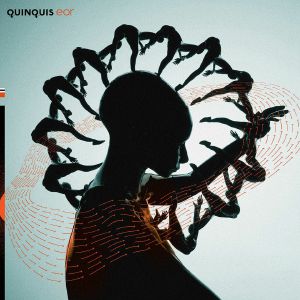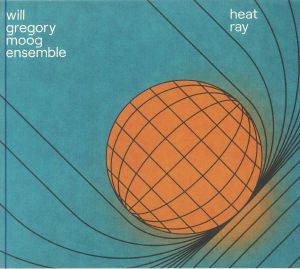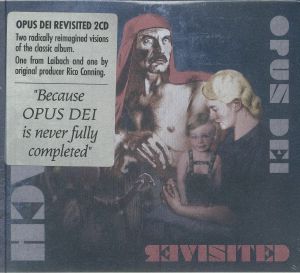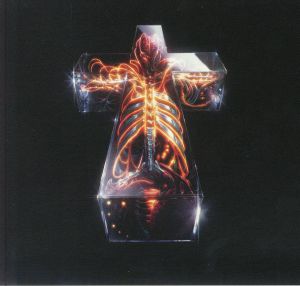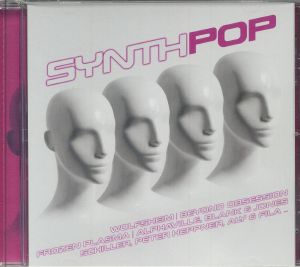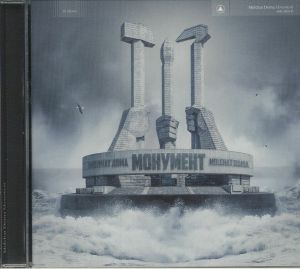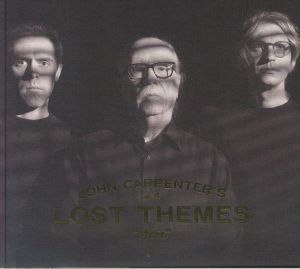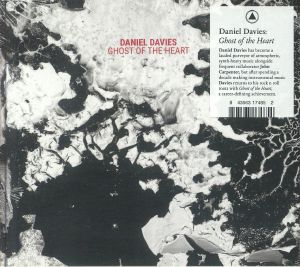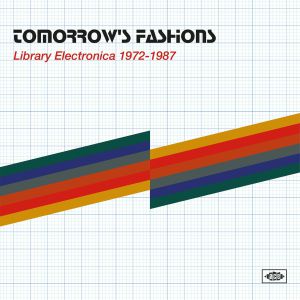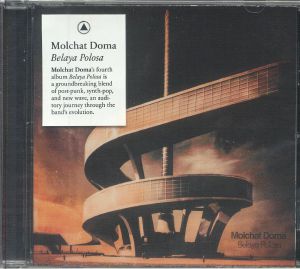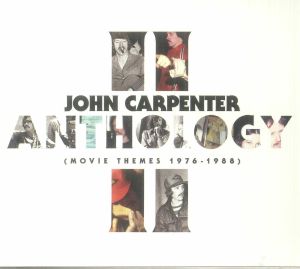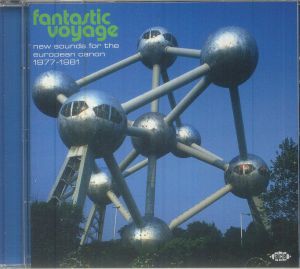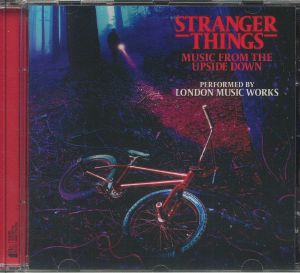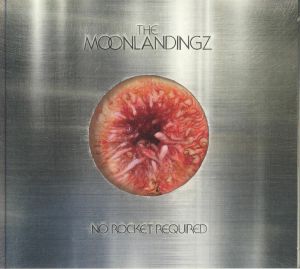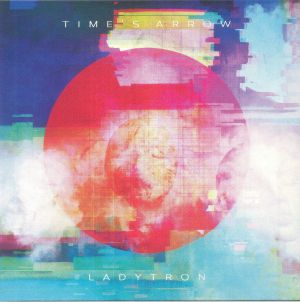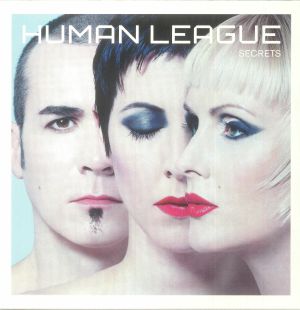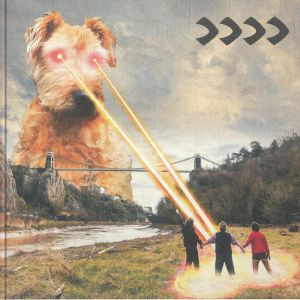Coldwave/Synth charts
Bestselling Coldwave/Synth vinylReview: Throbbing Gristle co-founder and all round British experimental electronic institution, Cosey Fanni Tutti returns with 2t2, a new full-length set for release through her own Conspiracy International label. The new nine-tracker extends the tracked terrains of 2019's Tutti, blurring personal reflections on years of loss and upheaval into prosthetic electronic soundscapes. The record unfolds over two contrasting halves, one beat-driven, the other more introspective, yet it also keeps anchored to a certain ground point emphasising resilience and focus. Lead cut 'Stound' features overtone chanting, which Cosey describes as a way to channel inner strength: "allowing the sounds to permeate and soothe as well as create a sense of power."
… Read more in stock $13.92
in stock $11.09
in stock $12.22
! low stock $12.22
Review: The influential German band Xmal Deutschland are overhead rafters in the great mead hall of goth. Their propulsive successes throughout the 1980s meant the genre likely couldn't've done without them. A large band come music collective, made up of at least eight members at any given time, Xmal's formation in Hamburg and would presell audiences on a stalwart performance rep, thanks to an early tour and gig residency in support of dream pop preeminents Cocteau Twins. Rallied to fame by their goth classics 'Incubus Succubus' and 'Qual', this 2xCD review conjoins two of the earliest and most pivotal albums on which both of said singles were housed - Fetisch and Tocsin - along with tracks from other key releases, such as Incubus Succubus II. Helping blacken an otherwise dreamy time, these LPs highlight the gloomier soils of a superficially bright 1980s soundfield, which otherwise roseated by shoegaze. Photography by Kevin Cummins, Paul Slattery, Sheila Rock and more all capture the spirit.
… Read moreGespielt von: Juno Recommends Leftfield
in stock $13.92
in stock $12.22
Review: This CD edition of X Mal Deutschland highlights the Hamburg formed band in its infancy. The band started making music in 1980 and this compilation gathers their first two singles worth of music along with two special tracks off other compilations they were featured on. The band sound is unqiue and powerful - goth rock, experimental and new wave are just a few styles the tracks can verge into. In just the two years that make up this CD, you can hear the band growing from a raw experimention with sound and structure to a powerful goth rock band. A special shout out to the Sacred Bones label for trusting in their music enough to release this.
… Read more in stock $12.49
in stock $13.06
! low stock $13.92
The Broadcast Collection 1983/1990 (3xCD box set)
Cat: CL 91600. Rel: 19 Apr 23
in stock $11.09
in stock $12.49
in stock $12.49
Gespielt von: Juno Recommends Leftfield, Juno Recommends Experimental
in stock $11.09
in stock $13.35
Review: Back in 2016, Martin Jenkins unveiled the first instalment of a "loose trilogy" of vaguely conceptual albums for the Ghost Box label. Entangled Routes is the third and final part of this trilogy and lands two years after its predecessor, Hollow Earth. Though not expressly acknowledged within the music, Jenkins' inspiration this time round was apparently "mycorrhizal networks" - subterranean networks of funghi that transfer water, carbon and other minerals and nutrients to the roots of plants. Musically, what's on offer is intoxicating and far-sighted, with Jenkins mixing up trippy ambient psychedelia with modular-rich, melodious electronica, throbbing, arpeggio-driven dancefloor cuts and what would once have been called IDM. As usual, the album is full of great ideas, beautifully executed, and sequenced in such a way as to provide a genuine aural journey.
… Read more in stock $14.21
Review: After a run of reissues and a boundary-blurring fusion of classical music and electronica (January 2021's Angel's Flight), Norwegian ambient veteran Geir Jennsen AKA Biosphere has gone back to basics on Shortwave Memories. Ditching software and computers for analogue synths, drum machines and effects units, Jennsen has delivered album that he claims was inspired by the post-punk era electronics of Daniel Miller and Matin Hannett, but instead sounds like a new, less dancefloor-conscious take on the hybrid ambient/techno sound he was famous for in the early 1990s. The results are uniformly brilliant, making this one of the Norwegian trailblazer's most alluring and sonically comforting albums for decades.
… Read more in stock $13.92
Review: Last year, regular collaborators Ian Boddy (a Sunderland-based electronics wizard who founded the ambient-focused DiN imprint years ago) and Erik Wallo (a long-serving Norwegian guitarist primiarly known for his experimental and ambient releases) performed their first joint concert for a decade. It's that performance, where they jammed out extended and much-changed versions of tracks featured on some of their prior studio sets, which forms the basis of their latest full-length, Transmissions. As you'd expect, it's a wonderfully atmospheric and evocative affair that gets the most out of both artists, with highlights including the wonderfully creepy 'Uncharted', the krautrock-style hypnotism of 'Aboena', the icy and ethereal 'Ice Station' and the slow-burn bliss of 'Salvage'.
… Read more in stock $14.21
in stock $13.35
in stock $14.49
in stock $12.22
Review: Originally released in 1984, this album remains one of the most experimental and groundbreaking albums in electronic music with Jarre's fans including everyone from Jeff Mills to Eno and Depeche Mode's Martin Gore. With its fusion of cutting-edge sampling techniques and rich, multicultural vocal work, the album stands out as a pivotal moment in both Jarre's career and in the history of music production. For its 40th anniversary, the album has been reissued in a remastered edition, with a bonus track, 'Moon Machine', making it an ideal time to revisit its timeless innovation. The album utilizes the Fairlight CMI sampler to manipulate vocal samples from over 25 languages, creating a truly unique soundscape. Tracks like 'Ethnicolor' and 'Diva' exhibit Jarre's use of avant-garde techniques, blending musique concrete influences with electronic textures and vivid, expressive vocals from artists like Laurie Anderson. The album's surreal qualities are further enriched by its diverse use of genres and influencesifrom the haunting 'Ethnicolor 1' to the funky, upbeat groove of 'Zoolookologie'. Though Zoolook diverges from the atmospheric, space-themed sound of Oxygene and Equinoxe, its experimental nature and complex structure push boundaries and make it an essential listen. While some tracks, like 'Woolloomooloo' and 'Blah Blah Kafe', slow the pace, they provide a contrast to the more intense moments, rounding out the album's broad, eclectic emotional range. Ultimately, Zoolook is a landmark in blending technology, culture and sound, and this anniversary edition is a fitting tribute to an album that helped shape the future of electronic music.
… Read more in stock $13.92
Jean Michel JARRE / VARIOUS
Electronica Vol 2: The Heart Of Noise (unmixed CD)
Cat: 888751 96672. Rel: 10 Jun 16
in stock $11.09
in stock $14.77
Review: Given her length of service (her first appearance as a guest vocalist was way back in 1992), it seems extraordinary that The Love Invention is officially Alison Goldfrapp's debut solo album. It's a typically sparkling, colourful and entertaining affair, taking the synth-pop sound that marked out her long collaboration with Will Gregory as Goldfrapp, and injecting it with a big dose of dance-pop energy. It's hardly a radical recalibration of her sound, though the influence of some of her collaborators - most notably co-producer Richard X (who was involved in some of the album's strongest moments) - is certainly evident. Goldfrapp naturally stars throughout, channelling her inner Roisin Murphy, with highlights including the sub-heavy, house-influenced synth-pop strut of 'So Hard So Hot', the vibrant 'The Love Injection' and catchy opener 'Never Stop'.
… Read more in stock $12.49
in stock $13.92
in stock $13.62
Review: The Will Gregory Moog Ensemble's debut album, Heat Ray, is a riveting exploration inspired by the ancient Greek mathematician Archimedes. Recorded on analogue synthesizers alongside the BBC National Orchestra of Wales, the ensemble - led by Goldfrapp co-creator Will Gregory - brings together up to 14 talented players, including Portishead's Adrian Utley and Mute's Daniel Miller. Heat Ray fuses spirals of melody, circular structures, and intricate patterns, drawing inspiration from Archimedes' mathematical principles. The album's genesis during pandemic lockdowns reflects Gregory's deep dive into Archimedes' life, sparked by online lectures. With a lineup boasting instruments like the Minimoog and Prophet 6, the ensemble weaves a stunning superstructure of sounds, guided by Gregory's effervescent spirit of discovery. The result is a splendid blend of ancient history and modern innovation, where musical exploration converges with mathematical curiosity. Heat Ray not only pays homage to Archimedes' legacy but also propels listeners towards an endlessly fascinating future.
… Read moreGespielt von: Juno Recommends Experimental
in stock $12.22
Transnational (Revisited)
How The West Was Won (Revisited)
The Great Seal (Revisited)
Opus Dei (Revisited)
Opus Dei (remix)
Transnational (remix)
How The West Was Won (remix)
The Great Seal (remix)
Review: Laibach revisits two iconic tracks from their 1987 opus, bringing new intensity to 'Leben heiBt Leben' and 'Geburt einer Nation.' Originally reworked for live performances, these versions merge theatrical drama with sharper sonic edges. The second disc ventures further, with original producer Rico Conning layering remixes that strip back and reimagine the band's audacious sound. This project doesn't just reframe the past; it grapples with it, offering both a homage and a provocative challenge to how we hear Laibach today.
… Read more in stock $10.51
Review: Marie Davidson's sixth studio album finds her collaborating with Belgium bossmen Soulwax - previously responsible for the massive rework of her 'Work It' track - and Pierre Guerineau. It follows her fiery single 'Y.A.A.M. (Your Asses Are Mine)' and the intense club track 'Contrarian' and marks a return to the dance floor but reimagined with the artist's signature sense of evolution. Blending the techno punch and spoken-word edge of Working Class Woman with the melodic pop structures of Renegade Breakdown, City of Clowns delivers a striking sonic fusion that is inspired by her pre-pandemic roots yet shaped by fresh antagonism, all while Davidson confronts a new foe: Big Tech.
… Read more in stock $13.35
Review: In recent interviews, Justice explained that fourth album Hyperdrama - the wildly successful French duo's first for seven years - was born out of the idea of getting elements of disco, funk and electronic music to "fight with each other" (rather than smoother co-existence). Given the forthright and sometimes abrasive nature of their work, it's an idea in keeping with their career to date. Musically, what we get is a mixture of their usual electroclash and rave-inspired riffs and motifs, and basslines, strings and other instrumentation rooted in black dance music of the 1970s and '80s. When the fusion lands - as it does much of the time - it's a unique and thrilling fusion. For proof, check Tama Impala hook-up 'One Night/All Night', the Italo disco/jazz-funk/electro-house fusion of 'Incognito', and the wonderful slow-boogie mutation 'Saturine'.
… Read more in stock $11.09
in stock $12.49
Utonut
Obrechen
Discoteque
Ne Smeshno
Otveta Net
Zvezdy
Udalil Tvoy Nomer
Leningradskiy Blues
Lubit' I Vypolnyat'
in stock $12.49
Lost Themes IV: Noir (CD in slipcase)
Cat: SBR 336CD. Rel: 02 May 24
Review: A decade ago, legendary horror movie composer/director John Carpenter joined forces with son Cody and godson Daniel Davies to make Lost Themes, a collection of new musical compositions to "soundtrack the movies in your mind". It kick-started a prolific period of musical activity which included both real soundtracks and music made for imaginary ones. Lost Themes IV sits in the latter camp, with the trio delivering music inspired by the aesthetic of "noir" movies. While Carpenter senior's suspenseful, paired-down drum machine rhythms and clandestine synthesiser sounds are still present, they work in harmony with creepy effects, immersive sound effects and additional instrumentation. For proof, see the growling guitars on 'My name IS Death' and the exotic classical guitars and sitars of 'He Walks. By Night'.
… Read more in stock $13.06
in stock $13.35
VARIOUS
Tomorrow's Fashions: Library Electronica 1972-1987 (unmixed CD)
Cat: CDCHD 1640. Rel: 27 Jun 24
Review: In the 70s and 80s, nothing was as revolutionary as the synthesiser. Electronic sounds became essential for forward-thinking adverts, with TV producers and advertisers seeking music akin to 'Tubular Bells,' Tomita, and Jean Michel Jarre. Music libraries like De Wolfe, Bruton, Parry, and Chappell swiftly adapted. Bob Stanley's new album, 'Tomorrow's Fashions,' compiles advertising jingles, TV themes, and space exploration tracks with ambient beats from that era. Despite being 40-50 years old, the music feels fresh, featuring jazz veterans like Brian Bennett and John Cameron embracing synthesizers. This electronica predated new age and ambient music, influenced pop, early Human League, Warp Records, and has been sampled by MF Doom and Kendrick Lamar.
… Read more in stock $13.35
in stock $12.49
Cat: SBR 324CD. Rel: 05 Oct 23
in stock $12.72
Bob STANLEY / JASON WOOD / VARIOUS
Cat: CDCHD 1630. Rel: 24 Jan 24
in stock $13.92
in stock $13.06
Cat: SILCD 1710. Rel: 21 Nov 24
in stock $13.62
in stock $12.49
in stock $10.10
in stock $11.03
Review: Bristol trio Beak>, like their co-founder Geoff Barrow, have always had a tendency towards the obtuse, choosing to go where they please musically with an air of disenchanted veterans whose faith in the world is waning all the time. This dystopian streak was evident on their 2009 full-length debut, where they consciously avoided overdubs and studio trickery, and it has returned to the fore on their widely acclaimed fourth studio set - a collection of 'head music' that they insist should only be listened to in its entirety. If you do that - and you should - you'll be treated to a delightfully cosmic, psychedelic and otherworldly journey through organ-heavy dream pop ('Strawberry Line'), wide-eyed krautrock-influenced funkiness ('The Seal'), acid-fried soundtrack weirdness ('Windmill Hill'), gentler and more intergalactic excursions ('Bloody Miles') and much more besides.
… Read more in stock $14.21
in stock $14.77
in stock $14.77
in stock $12.57

 USD
USD




